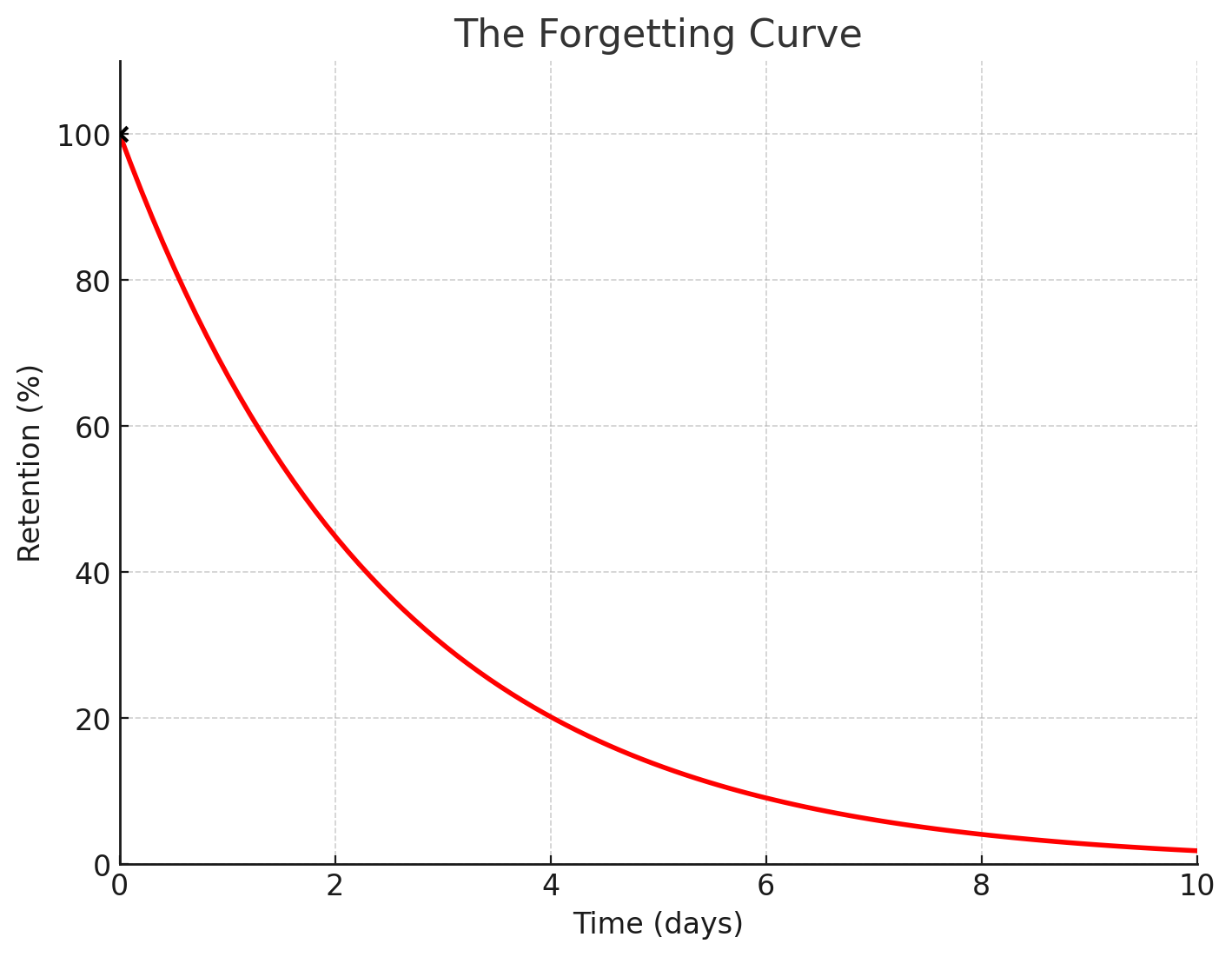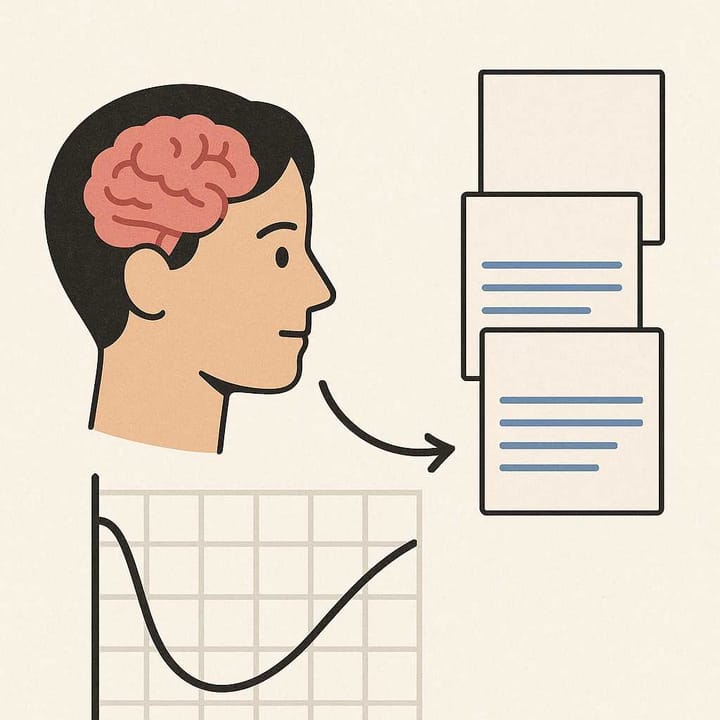Mastering the Art of Effective Studying: Active Recall and Spaced Repetition
Struggling to retain information for your ACA exams? Discover how active recall and spaced repetition can revolutionise your study habits and boost your chances of success.

The Power of Active Recall: Diving Deep into Learning
Passive reading has long been a staple of traditional studying methods, but it's time to shake things up.
While skimming through your textbooks and notes has its place in the initial stages of learning, it's the active recall that truly elevates your study game to new heights.
Think of passive reading as merely skimming the surface of a lake, while active recall plunges you deep beneath the waters to explore what lies underneath.
When you engage in passive reading, you're simply observing information, allowing it to wash over you without truly engaging with it.
Active recall, on the other hand, demands that you interact with the material, manipulate it, and ultimately make it stick in your long-term memory.
The difference in retention rates between these two approaches is stark. Research has consistently shown that active recall can significantly enhance long-term retention of material. For ACA students facing an overwhelming volume of information and the need for accuracy and quick recall during exams, this distinction is crucial.
As you progress through the various levels of the ACA qualification, having a solid foundation of knowledge from earlier levels becomes increasingly valuable.
By employing active recall techniques, you'll find yourself at a distinct advantage over other students who may struggle to draw on previous knowledge or need to spend precious time revising content they've long forgotten.
Moreover, active recall trains your brain not just to recognise information when it's presented to you (which can act as a memory jogger), but to recall it from scratch. This more demanding cognitive task creates stronger and more lasting memory traces. Plus, this method tends to foster a deeper understanding and integration of knowledge, helping you link concepts together rather than simply memorising isolated facts.
Incorporating active recall into your revision strategy isn't just about boosting memory retention; it's about transforming how you interact with the material, making your study sessions more dynamic, engaging, and ultimately more effective.
Whether you're flipping through flashcards, working through the hundreds of quick-fire questions that we provide on our courses, or challenging yourself to recall and write down what you've learned, each step taken is a solid stride towards not just passing your exams, but excelling in them.
So, it's time to give your highlighter a break. Pick up some flashcards, draft some test questions, and actively engage with your learning.
Your brain—and your future self as a qualified Chartered Accountant—will thank you for it.
Spaced Repetition: The Science of Remembering
Understanding the science behind spaced repetition might sound a tad dry, but stick with it—it's fascinating stuff that can make a huge difference in how you handle those hefty e-books and sets of notes.
Picture your brain as a very selective sieve that only retains what it truly deems necessary. If you revise your study notes just once, your brain might think, "Ah, maybe this isn't all that important," and poof, details could start slipping through the gaps. That's where spaced repetition sails in to save the day.
This technique is a scientifically backed method that boosts the efficiency of your memory by increasing the intervals of time between reviews of what you've learned. It taps into the psychological spacing effect, which suggests that you can remember information better if you use repeated, spaced-out sessions to encode it into long-term memory, rather than trying to cram it all in one marathon session.
When you first learn a new concept, your ability to retain it naturally declines over time—a phenomenon known as the forgetting curve.

However, each time you review the material, the rate of decline decreases, and the information takes a firmer hold in your memory. Essentially, it's like reinforcing the wiring in your brain each time you go over the materials.
Tools for Implementing Spaced Repetition
Moving onto the practical stuff: tools for spaced repetition. Thankfully, we live in the age of technology, where everything you need is likely at your fingertips.
Several apps can make spaced repetition a breeze. Anki and Quizlet, for example, are fan favourites for a reason.
Both platforms use algorithms to determine the optimal intervals for reviewing flashcards based on how well you've learned the material. Each time you review a card and indicate how easy or difficult it was, the app adjusts the timing of when you should see that card again.
Not only do these tools save you the grunt work of scheduling, but they also ensure that you're focusing more on material that's challenging for you and less on what you already know well—maximising your study efficiency. Plus, they're both pretty user-friendly.
Crafting Your Personal Spaced Repetition Schedule
Crafting a personal spaced repetition schedule might sound like a daunting task, but it's actually pretty straightforward once you get the hang of it.
Start by selecting the material that needs to be committed to long-term memory.
Next, decide on the review intervals; a typical pattern might be to review the material after one day, then three days, then a week, and so on.
The key here is consistency and adjustment based on your personal experience. If you find yourself easily remembering certain information, extend the intervals between reviews. Conversely, if you're struggling with some concepts, shorten the time between sessions for those topics.
It's all about customising the process to fit your learning pace and making sure that no important details slip through the cracks.
Remember, the goal of spaced repetition isn't just to pass your exams with flying colours (although that's a pretty great outcome), but to retain this knowledge so you can apply it effectively in your career as a Chartered Accountant.
This method ensures that when you're knee-deep in audit work or financial analysis, those crucial pieces of information are readily accessible in your mental ledger, not buried under months of memory clutter.
By integrating these strategies into your study routine, you're setting yourself up not just for exam success, but for a proficient and knowledgeable career.
With tools at your disposal and a personalised approach to reviewing content, mastering spaced repetition can transform your learning process and significantly reduce the stress associated with those looming exam dates. So, give it a shot—your future self will thank you for it.




Comments ()